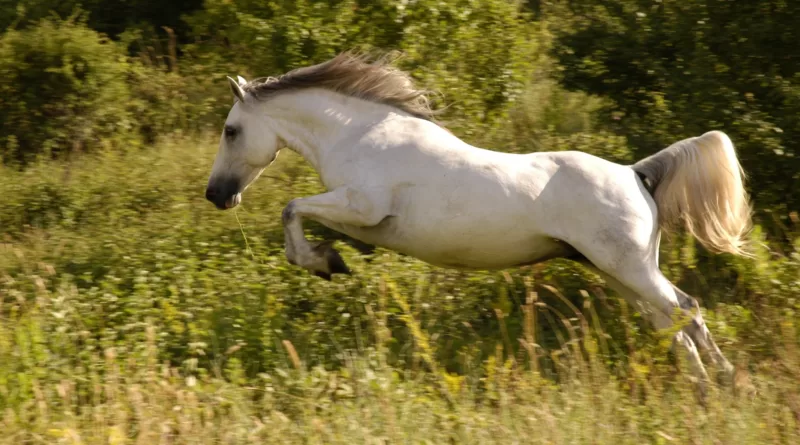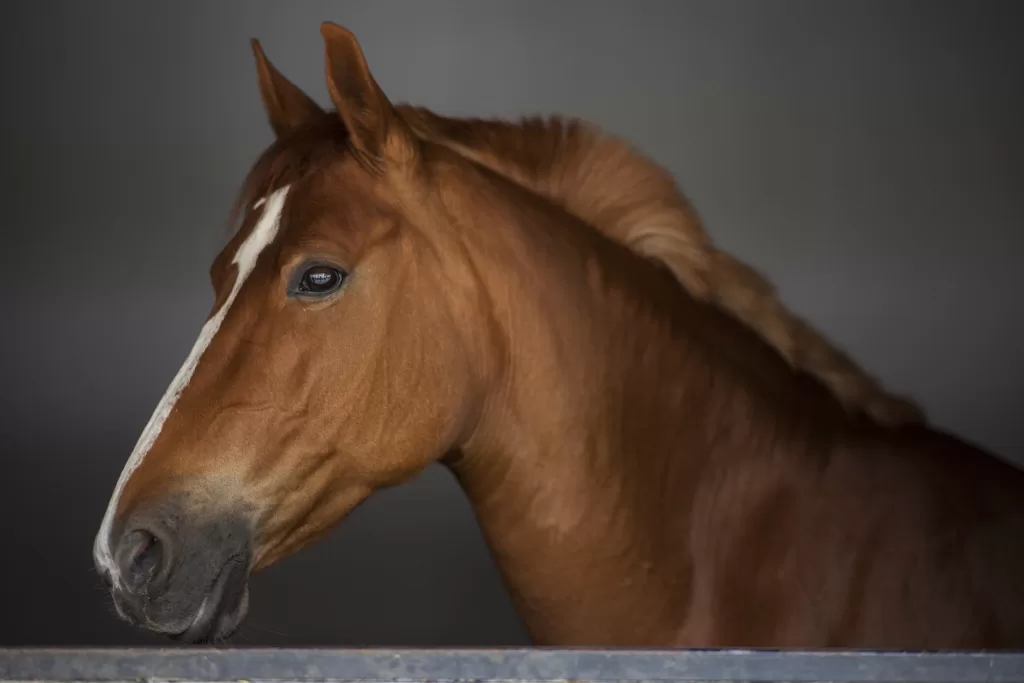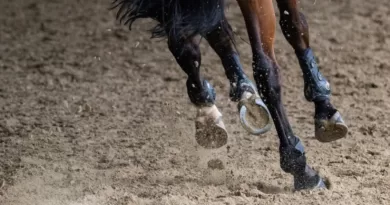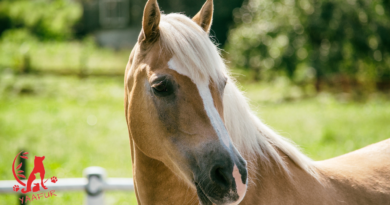How Long Can a Horse Live?
Horses, those majestic creatures that have been a part of human history for centuries, have always fascinated us with their grace and beauty. These magnificent animals have been our companions in labor, sport, and leisure. But one question that often comes to mind when we admire these creatures is, “How long can a horse live?” In this article, we will explore the factors that influence a horse’s lifespan and what you can do to ensure your equine friend lives a long and healthy life.
Understanding Horse Lifespan
The average lifespan of a horse can vary depending on several factors. On average, horses live to be around 25 to 30 years old. However, some horses have been known to live well into their 40s, while others may not make it past their teens. Understanding the factors that influence their longevity is crucial for horse owners and enthusiasts.
Factors Influencing Horse Lifespan
1. Breed
The breed of a horse plays a significant role in determining its lifespan. Some breeds are known for their robust health and longevity, while others may have genetic predispositions to certain health issues. For instance, smaller horse breeds like the Miniature Horse tend to have longer lifespans, often reaching their late 30s. On the other hand, larger breeds such as the Thoroughbred may have a shorter lifespan, averaging around 25 years.
2. Nutrition
Proper nutrition is a cornerstone of equine health and longevity. A well-balanced diet that meets the horse’s specific nutritional requirements is essential. Horses should have access to fresh, high-quality forage and be fed a diet tailored to their age and activity level. Malnutrition or an imbalanced diet can lead to various health issues that can shorten a horse’s lifespan.
3. Healthcare
Regular veterinary care and dental check-ups are crucial for maintaining a horse’s health. Vaccinations, deworming, and preventive care are vital to ensure a horse’s longevity. Neglecting these aspects of healthcare can lead to preventable illnesses and potentially reduce a horse’s lifespan.
4. Environment
The environment in which a horse lives can greatly impact its lifespan. Horses kept in clean, well-maintained pastures with adequate shelter and protection from extreme weather conditions tend to live longer and healthier lives. Stressful or overcrowded living conditions can lead to various health issues and negatively affect their longevity.
5. Exercise and Activity
Horses, by nature, are active animals. Regular exercise is essential for maintaining their physical and mental well-being. Engaging in activities such as riding, grazing, and social interaction with other horses helps prevent obesity, muscle atrophy, and boredom-related problems, contributing to a longer and happier life.
6. Genetics
Genetics play a significant role in a horse’s lifespan. Some individuals are genetically predisposed to certain health conditions, while others may have strong, resilient genes that promote a longer life. Breeding practices also influence a horse’s genetic makeup, so responsible breeding can help improve the overall health and longevity of horses.
Additional Tips for a Longer Horse Life
7. Dental Care
Proper dental care is often overlooked but is crucial for a horse’s overall health and lifespan. Horses have teeth that continuously grow throughout their lives, and dental problems can arise if not addressed. Regular dental check-ups and floating (filing down sharp points on the teeth) are essential to prevent issues related to chewing, digestion, and overall well-being.
8. Parasite Control
Internal and external parasites can wreak havoc on a horse’s health. Regular deworming and parasite control are vital to maintaining a horse’s vitality and longevity. Consult your veterinarian for a deworming schedule tailored to your horse’s specific needs.
9. Proper Shelter
Adequate shelter is essential to protect your horse from extreme weather conditions, such as intense heat, cold, and heavy rain. Exposure to harsh elements can lead to stress, illness, and, ultimately, a reduced lifespan. Ensure that your horse has access to a well-constructed shelter or stable when needed.
10. Social Interaction
Horses are social animals and thrive on interaction with other horses. Isolation can lead to loneliness and stress. If possible, keep your horse in the company of other compatible equines to promote their mental well-being and happiness.
11. Regular Exercise
Exercise is not only important for physical health but also for a horse’s mental well-being. Regular riding, turnout in pastures, and activities that engage the horse’s mind help reduce boredom and promote longevity. Tailor your horse’s exercise regimen to its age and fitness level.
12. Early Disease Detection
Early detection of diseases and health issues can make a significant difference in a horse’s prognosis. Be vigilant for signs of illness, injury, or behavioral changes. Regular health check-ups and immediate veterinary attention when needed are crucial.
13. Emergency Preparedness
Prepare for emergencies by having a well-stocked equine first-aid kit and an emergency plan in place. Quick response to injuries or illnesses can be a lifesaver for your horse.
14. Vaccinations
Vaccinations are essential to protect your horse from preventable diseases. Consult with your veterinarian to establish a vaccination schedule tailored to your horse’s specific needs and risks.
Seasonal Considerations
15. Winter Care
During the cold winter months, it’s crucial to provide additional care. Ensure your horse has access to fresh water that isn’t frozen, warm shelter, and extra feed to maintain body condition. Regularly check for signs of hypothermia, such as shivering and a puffed-up coat.
16. Summer Management
In hot summer weather, protect your horse from heat stress. Provide shade and ample water, and consider using fly repellents and fans to keep them cool. Be vigilant for signs of dehydration and heat-related illnesses.
Monitoring Health
17. Body Condition Scoring
Regularly assess your horse’s body condition. Moreover, maintain a balance between not overfeeding and not underfeeding. Additionally, a proper body condition score ensures your horse stays at a healthy weight, thereby preventing obesity-related health problems.
18. Behavior Observation
Horses often communicate their discomfort or illness through changes in behavior. Pay attention to any unusual behavior, such as lethargy, lameness, or irritability, as it can be an early indicator of underlying health issues.
Special Considerations for Senior Horses
19. Senior Horse Care
As horses age, they require additional attention. Adjust their diet to accommodate any dental issues or difficulty chewing. Regular veterinary check-ups become even more crucial for detecting age-related health concerns and providing appropriate care.
20. Emotional Well-being
Recognize that horses have emotional needs too. Spend quality time with your horse to build a strong bond and provide companionship. A happy and emotionally content horse is more likely to lead a long and fulfilling life.
Equine Retirement
21. Retirement Planning
Consider your horse’s retirement carefully. Furthermore, some older horses may no longer be suitable for strenuous activities. Consequently, planning for a peaceful and well-deserved retirement in a suitable environment can ensure a comfortable and enjoyable senior life for your horse.
FAQs:
1. What is the average lifespan of a horse?
The average lifespan of a horse is around 25 to 30 years. However, this can vary depending on factors such as breed, genetics, care, and living conditions.
2. How can I help my horse live a longer life?
To promote a longer life for your horse, it’s important to provide proper nutrition, along with regular healthcare, ensuring a comfortable environment. Additionally, fostering social interaction and consistent exercise are essential. Moreover, pay close attention to their unique needs, and consider genetic factors in your care regimen.
3. Are there specific breeds known for longer lifespans?
Yes, some smaller horse breeds like the Miniature Horse are known for their longer lifespans, often reaching their late 30s. Larger breeds, such as the Thoroughbred, tend to have a shorter average lifespan.
4. How often should I have my horse’s teeth checked?
Regular dental check-ups are essential for your horse’s well-being. It’s recommended to have your horse’s teeth checked by a veterinarian or equine dentist at least once a year, with more frequent checks if issues arise.
5. What is the importance of exercise for horses?
Exercise is vital for maintaining a horse’s physical and mental health. Regular activity prevents obesity, muscle atrophy, and boredom-related problems, contributing to a longer and happier life.
6. How can I detect health issues in my horse early?
Watch for behavioral changes, such as lethargy, lameness, or irritability, as they can be early indicators of underlying health issues. Regular veterinary check-ups and body condition scoring are also important for early detection -how long can a horse live for.
7. What should I consider for a horse’s retirement plan?
Consider your horse’s age and physical condition. Some older horses may no longer be suitable for strenuous activities and may benefit from a peaceful retirement in a suitable environment with companionship and proper care -how long can a horse live for.
8. How can I protect my horse during extreme weather conditions?
Provide adequate shelter during cold weather and ensure access to unfrozen water. In hot weather, offer shade, ample water, and use fly repellents and fans to keep your horse cool and comfortable -how long can a horse live for.
9. Can I provide emotional support to my horse?
Yes, horses have emotional needs. Spend quality time with your horse to build a strong bond and provide companionship. A happy and emotionally content horse is more likely to lead a long and fulfilling life -how long can a horse live for.
See Also: How long do horses live? Amazing Facts About Horses’ Life
Conclusion
In conclusion, the lifespan of a horse can vary widely based on a multitude of factors. While the average horse lives to be around 25 to 30 years old, it’s possible for some horses to live well into their 40s with proper care and attention to their needs. As a horse owner or enthusiast, it’s your responsibility to provide your equine friend with the best possible care, including proper nutrition, healthcare, a suitable environment, regular exercise, and attention to their genetic background. By doing so, you can help ensure that your horse enjoys a long and fulfilling life by your side -how long can a horse live for.
Enjoyed this article? You May Also Like:
- Learn in 5 minutes about Cryotherapy for Horses
- Penicillin in Horses; Impeccable Guide in 10 minutes
- Excede Antibiotic For Horses, Fantastic Facts in 5 minutes
- The Science of Oxytocin in Horses: How This Hormone Influences Equine Behavior
- Can Horses Swim? Everything You Need To Know About Horse Swimming






